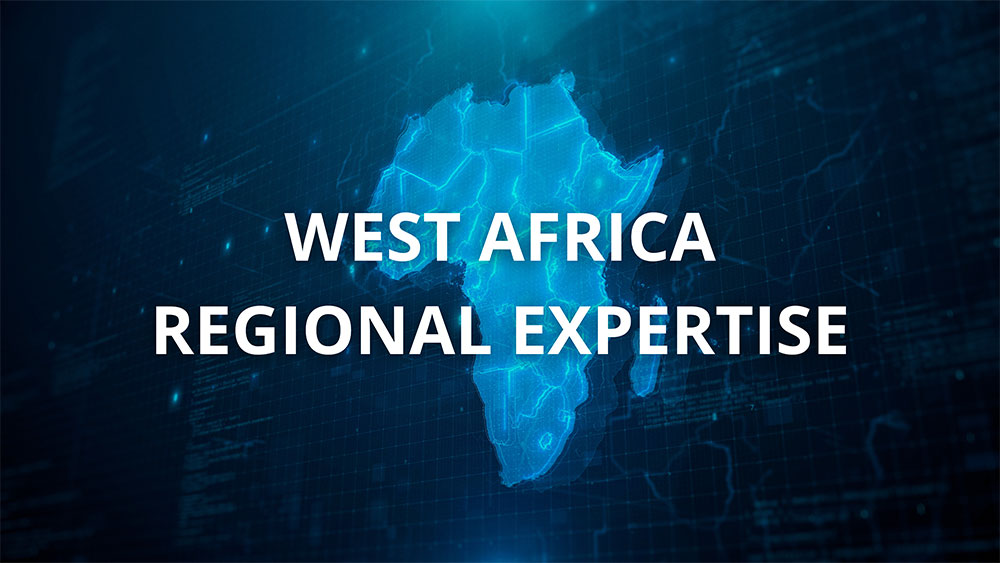West Africa Regional Expertise

The economic prospects for Africa in the next 5 to 10 years are positive. The continent is expected to experience continued economic growth, driven by a number of factors, including:
- A young and growing population
- A rapidly expanding middle class
- Increasing urbanization
- Rising levels of education and skills
- Technological advancements
- Natural resources
- Increased investment and trade
According to the African Development Bank, Africa’s real GDP growth is expected to average 4.1% in 2023-24, up from 3.8% in 2022. The Bank also projects that Africa’s economy will grow by 4.5% in 2025 and 5.0% in 2026.
The Economic Commission for Africa (ECA) also has a positive outlook for the African economy. The ECA projects that Africa’s real GDP growth will average 4.3% in 2023-24 and 4.5% in 2025-26.
The growth of the African economy will be driven by a number of sectors, including:
- Agriculture
- Manufacturing
- Services
- Tourism
- Infrastructure
The African economy is also expected to benefit from the growth of the global economy. Africa is increasingly integrated into the global economy, and its exports are growing.
Africa’s economic growth will have a number of positive impacts on the continent, including:
- Reduced poverty
- Improved living standards
- Increased job creation
- Improved infrastructure
- Increased access to education and healthcare
However, there are also some challenges that Africa will need to address in order to achieve its full economic potential. These challenges include:
- Political instability
- Corruption
- Climate change
- Infrastructure deficits
- High levels of unemployment
Despite these challenges, the economic outlook for Africa is positive. The continent is expected to experience continued economic growth in the next 5 to 10 years, driven by a number of factors, including its young and growing population, rapidly expanding middle class, and increasing urbanization.
Specific to West Africa, the region from Lagos to Abidjan, known as the Abidjan-Lagos Corridor, is one of the most economically promising regions in Africa. The corridor is home to a number of rapidly growing economies, including Nigeria, Ghana, Côte d’Ivoire, and Togo.
The corridor has a number of factors that contribute to its economic potential. These include:
- A young and growing population: The population of the corridor is young and growing rapidly. This presents a large and growing market for businesses.
- A rapidly expanding middle class: The middle class in the corridor is expanding rapidly. This means that there is a growing demand for goods and services that are typically consumed by the middle class.
- A growing economy: The economies of the countries in the corridor are growing rapidly. This creates opportunities for businesses to invest and grow.
- A strategic location: The corridor is located between the Atlantic Ocean and the Sahel region. This gives it access to both major markets and resources.
The Abidjan-Lagos Corridor is well-positioned to benefit from the growing global economy. The corridor has a number of key sectors that are expected to grow in the coming years, including:
- Agriculture: The corridor is home to a number of fertile agricultural regions. This makes it a major producer of food and agricultural products.
- Manufacturing: The corridor is home to a number of manufacturing industries, including textiles, apparel, and electronics.
- Services: The corridor is also home to a number of growing service sectors, including financial services and tourism.
The economic potential of the Abidjan-Lagos Corridor is significant. The corridor is home to a number of factors that contribute to its economic growth, including a young and growing population, a rapidly expanding middle class, a growing economy, and a strategic location. The corridor is well-positioned to benefit from the growing global economy and to become a major economic hub in Africa.
In addition to the key sectors mentioned above, the Abidjan-Lagos Corridor also has the potential to develop into a major logistics hub for Africa. The corridor is home to a number of major ports and airports, which gives it access to both domestic and international markets. The corridor is also well-connected by roads and railways, which makes it easy to transport goods and services throughout the region.
Come join us for a world of opportunity!
